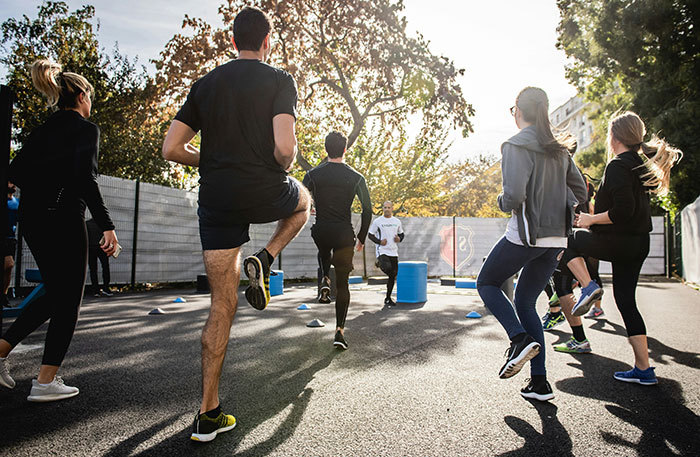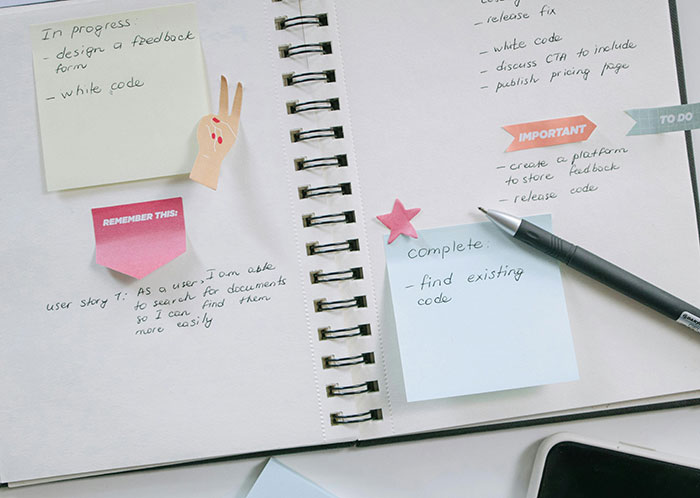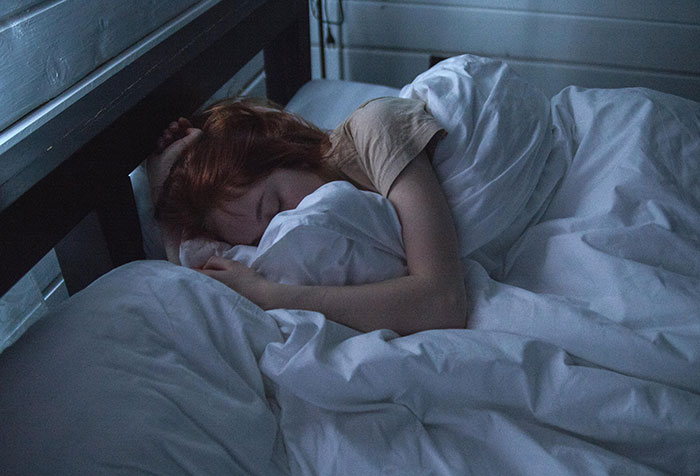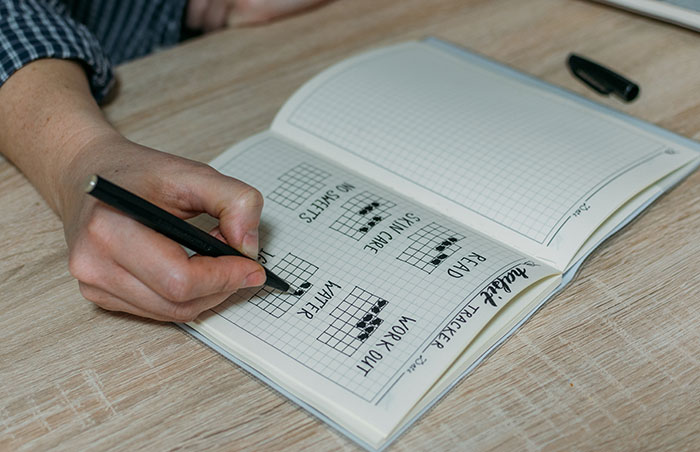Mental health is currently a prominent topic of discussion. Conversations about mental well-being are increasingly appearing on TV shows and social media, and high-profile figures like actors, athletes, and global pop stars are becoming more vocal about going to therapy. This marks a change from previous decades when mental health was highly stigmatized, keeping people from seeking treatment.
With the term being used so frequently, its meaning can become confusing. Mental health includes our emotional, psychological, and social well-being, the CDC writes. It is the overall wellness of how we think, regulate our feelings, and behave, and it determines how we handle stress, relate to others, and make healthy choices.
It is important at every stage of life, from childhood and adolescence through adulthood.
Bored Panda consulted with three specialists to ask them which habits we can incorporate into our daily lives to improve our mental health.
Physical activity

“Physical activity holds many benefits, including improved mood and reduced symptoms of anxiety and depression, enhanced cognitive function and memory, and better physical health,” explains Carol Maher, professor of Population and Digital Health at the University of South Australia.
Maher specializes in the relationship between activity (physical activity, sedentary behavior, and sleep) and mental health.
In contrast, a sedentary lifestyle has the opposite effects, being linked with depression, anxiety, and isolation.
“Sitting is the new smoking,” reminds Nami Nocifera, an individual and group therapist from Marina del Rey, California, who specializes in anxiety, depression, and stress.
“The more [time] that you sit, the worse that it is for your body, and our minds are connected to our bodies.”
If we’re sitting, then we’re also stagnating our minds and our overall mental health, Nocifera says.
“Taking a walk is something that we recommend to our clients, especially those with anxiety, substance use disorder, or depression. Who’s ever felt worse after a walk? It connects you with the outside and nature and makes you feel like you’re part of something bigger.”
However, indoor exercise also holds great benefits and provides a safe and convenient year-round option, Maher points out.
Fighting procrastination and taking action

Why do we postpone certain activities or conversations despite knowing that taking action would be more beneficial than harboring all these negative thoughts in our minds?
In many cases, procrastination is related to perfectionism.
“We want to do it right, so we put off doing it until we hit the perfect time. But it’s important to realize that there is no perfect time,” says Nocifera.
Something that can help materialize the ideas on our to-do list is identifying what our values are. The therapist exemplifies this with the process of learning.
“If I’m gonna put off studying until it’s just the right time, until I feel like it, then I might put it off forever because I might never feel like studying.
“But if I say, ‘OK, learning is one of my values, and instead of feeling tired or hungover, I’m going to keep working towards what’s important to me,’ which is intellectual worth, then that can help.”
But procrastination can also be the result of poor planning, distractions, lack of interest, or a manifestation of a more concerning problem like anxiety or depression, adds Sharon Martin, psychotherapist and author of The Better Boundaries Guided Journal and The CBT Workbook for Perfectionism.
“To avoid procrastination, you can break tasks into smaller, manageable steps, prioritize tasks, eliminate distractions, and use an accountability partner,” Martin recommends.
Social interaction

Daily human interactions can foster a sense of belonging and purpose, both of which are linked to improved mental health.
“Relationships decrease loneliness, which is associated with depression and physical health ailments,” explains Martin.
But this doesn’t mean that you have to meet with your friends every day. Just taking the time to go outside and engage in small talk can make a difference.
“It’s crucial to speak to people, not online, but to see them in person,” Nocifera explains.
“Little interactions are very meaningful. Even when you go out and have a conversation with your neighbor, the person at the store down the street, or someone in a coffee shop – any connection is important.”
“We evolved as humans to be part of big social groups and extended families for survival reasons, so we need to be around people.”
Getting enough sleep

Research indicates that even partial sleep deprivation can negatively affect our mood.
A study conducted by researchers at the University of Pennsylvania found that individuals who were limited to only 4.5 hours of sleep a night for one week reported feeling more stressed, angry, sad, and mentally exhausted.
Conversely, when the individuals resumed normal sleep, they reported a dramatic improvement in mood.
To ensure a good night’s rest, we should take into consideration what’s known as sleep hygiene, a concept that refers to our sleep environment and habits.
“Ensuring good sleep hygiene—such as maintaining a consistent sleep schedule, creating a restful environment, and avoiding screens before bed—is crucial for overall well-being,” advises Maher.
The reason we should avoid using our smartphones before bedtime is because our devices emit a short-wavelength blue light that tricks the brain into thinking it’s daytime. When this happens, we stop secreting a sleep hormone called melatonin.
Using a blue light filter in the evening partially reduces these negative effects, a study published in the National Center for Biotechnology Information suggests.
Being careful about our social media use

Although scrolling through social media can be tempting, especially to the younger generations, all experts agree that we should have a mindful approach when it comes to engaging with these platforms.
“Social media encourages users to compare themselves to others, leaving them feeling inadequate or left out,” Martin says. “Constant exposure to carefully curated images can lead to unrealistic expectations, which also contributes to feeling ‘less than.'”
“Social media use can contribute to loneliness and isolation and impede the development of deeper, more meaningful connections.”
When we find ourselves comparing our lifestyle, appearance, or achievements with others, we should shift our focus to internalizing our self-worth.
“Instead of comparing ourselves, we should focus on how aligned we are to our own values and what’s important to us,” Nocifera emphasizes.
If we are careful about platforms such as Instagram, LinkedIn, Facebook, and TikTok, we can also use them to our benefit.
“Social media can also have a positive impact on self-esteem – especially if people use it to be a part of a supportive community,” highlights Maher.
“There are also many social media groups founded on specific interests, which can serve as a valuable source of information for learning new skills and inspiration for personal growth, and where members share encouragement, validation, and a sense of belonging.”
Having a consistent routine and making time for ourselves

Having a routine is essential for our mental well-being.
“Routines provide stability and safety,” explains Martin. “They make it easier for us to maintain healthy habits, such as exercising, taking medication, or going to bed on time, which will help us stay physically and mentally healthy.”
In addition to going to work, it’s important that we make time in our busy schedules to treat ourselves and do activities related to leisure pleasure instead of stress and productivity.
“Making time to meditate, to call somebody, and connect with a loved one,” says Nocifera, should also be part of our routines.
Experts Reveal 6 Simple Steps That Can Help You Feel Much Better Emotionally And Psychologically Bored Panda






